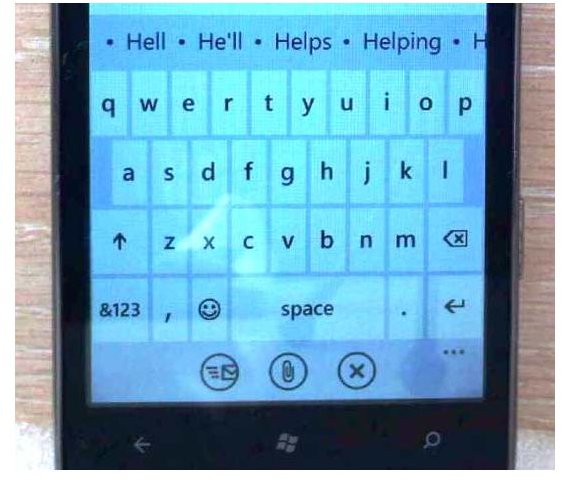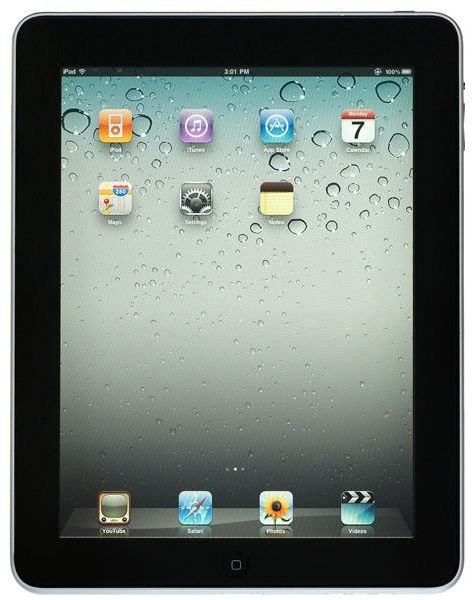Arguing Against the Apple Gestures Patent - Will Darwinists be Patenting Opposable Thumbs?
Did you hear the one about Charles Darwin, and the email he got from God’s legal people? Apparently they weren’t too happy about the father of evolutionary theory attempting to patent opposable digits as an element of natural selection…
Obviously, that didn’t happen, but it is no more ridiculous than the recent news that Apple has been awarded a key patent, one that allows them to license (or restrict) the use of fingers for interacting with mobile phones, tablets and other devices with a touch-screen interface.
While Pearly, Gates & Heaven might not be serving legal papers to Steve Jobs in the near future, this judgement does call into question the current pace of technology patent claims, not to mention Apple’s current aggressive policy on such matters. After all, when patents are challenged, the benefactors are determined by judges, and as such a precedent is set.
Is it too great a leap of imagination to foresee a time when Apple will attempt to patent breathing simply because a breathalyser app uses the process?
The Gestures Patent Explained
The recent news that Apple has been granted a patent in relation to the capacitive touch screen introduced on the iPhone and utilized on various pieces of hardware ever since has come as a kick in the teeth to other manufacturers who have also made use of the technology.
Now, you might argue that capacitive touch screens were already available but the decision, made after three years of deliberation and in the face of several challengers, concerns the way in which the user interacts with the touch-screen display. Apple has basically been awarded the opportunity to start claiming license fees from various competitors for some of the most recognized gestures in the consumer electronics arena, such as the pinch to zoom action used when viewing web pages and photographs.
As things stand with the patent law, as long as the implementation of a rival touch-screen user interface hasn’t completely copied the Apple version, any company that Apple might one day accuse of having stolen their system will have a defense against them.
How the World Might Go Mad
The real danger here, of course, is that Apple should get litigation happy and start forcing its competitors in the smartphone and tablet market to mount defenses in the face of litigation, something that will result in the target companies being forced to share information on how their own hardware works, not least invest a lot of time and effort into the defense.
But this is just the tip of the iceberg.
As the rather silly introduction to this piece observes, there has to be a place where taking a company to court over the way they ask their users to move their fingers needs to be observed as a step too far, and that place is right here with this particular patent. After all, it’s not a massive leap from suing for unpaid licensing fees to suing users for employing patented Apple gestures on a non-Apple device.
We live in a world where hardware has to be used as determined by the manufacturer, as demonstrated by Sony’s successful PlayStation 3 licensing, and Apple themselves impose restrictions on our own record collections via iTunes.
V for Victory?

If the way we move our fingers on a computer display can be patented, surely the “V for Victory” symbol, made famous by Britain’s wartime leader Winston Churchill, could theoretically be patented? Could this lead to descendants claiming fees from aging hippies around the world?
Perhaps the reversed V symbol – known as a gesture of disrespect in Europe – could be patented and licensed by Anglo Saxons (in the Middle Ages, the English were regularly at war with the French, and archers would taunt their Gallic enemies by pointing out that they still had their fingers, unlike their less fortunate, captured colleagues who would have the index and middle finger removed)?
And what of the QWERTY keyboard – if any patented user interface was owed a lot of money then it’s that one. Used on countless devices around the world and out in orbit above Earth, QWERTY makes it possible for us to communicate quickly and efficiently with words.
Where Will It End, Steve?
After all, there has to be time to put things into perspective and give life some thought, perhaps inject new meaning rather than be obsessed by the pursuit of riches. Apple is currently undergoing a transformation in its public persona from “cool and stylish” to “richer than everyone else” and as this happens, people will start to view the company in a much different light.
Apple could quite easily make these gestures available for free; establish them as a de facto standard, just as Adobe eventually did (after years of denial) with the PDF document format. Every so often a major company has to sit back and let its influence be genuinely accepted rather than rubbing its fingers together, and in this situation, the time has come for Apple and Steve Jobs to forget about cashing in and spend a few hours making light of the fact that their gestures have become so popular that they’re giving them away.
If not, then perhaps Pearly, Gates & Heaven will have a strongly worded letter concerning the use of gestures conceived by The Grand Designer himself many thousands of years ago…
References
- Tech Radar, https://www.techradar.com/news/phone-and-communications/mobile-phones/apple-wins-major-touchscreen-patent-969477
- Image credit: https://www.apple.com
- Using a QWERTY photo by author.
